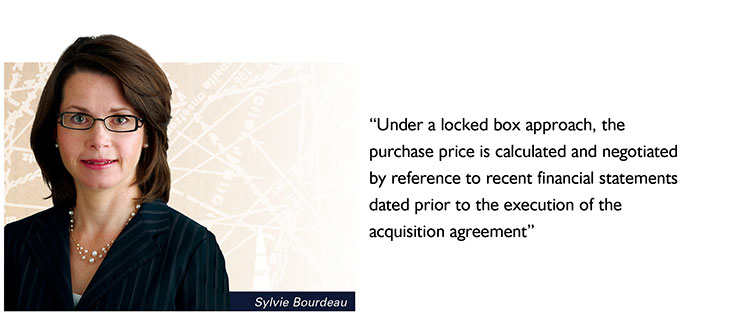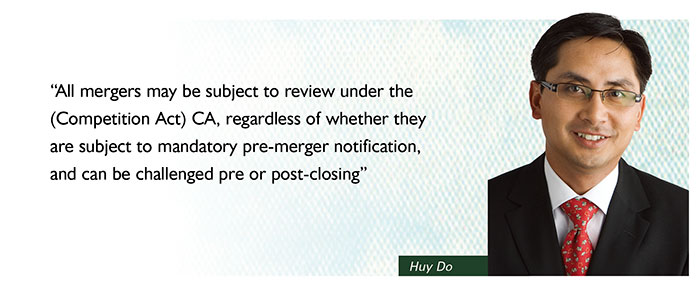Overview
Labour, Employment & Human Rights Bulletin
AUGUST 27, 2018
Enterprises doing business in Quebec collect various information about potential candidates and employees before and during their employment and when their employment relationship terminates.
The information collected during the hiring process may include a candidate’s curriculum vitae and the results of evaluations and response to questionnaires, for example. During the period of employment, even more data are collected: payroll records, time sheets and vacations, tax documents, information about training taken, and so on. When the employment terminates, additional documents may be collected, including resignation or dismissal letters, records of employment, and any evidence that supports dismissal as an administrative or disciplinary action.
Retention of the personal information collected carries with it various obligations, particularly in terms of access to the information[1] and confidentiality.[2]
The adoption of these measures involves not insignificant costs to enterprises, particularly when it comes to hosting or storage of the data. Enterprises doing business in Quebec must therefore provide for the retention and confidentiality of the data collected for a period that is sufficient for meeting their legal obligations. However, they have an equal interest in reducing the associated costs by limiting the retention period to what is necessary for protecting their interests.
We have prepared a table summarizing the mandatory and recommended retention periods in relation to the information collected before, during and on termination of employment, which can be seen at the end of this document.
For the various retention periods, it would be wise to adopt a two-level or three-level approach. Factors to be considered include the size of the enterprise, the volume of documents to be retained, and the volume of requests for access to the information or rectification.
A two-level approach consists of retention based on two time limits:
six years from the end of the fiscal period or the last taxation year in respect of which the documents in issue were held (or the equivalent of seven years) [3] for all documents, whether financial or not, for a period that complies, at a minimum, with the most stringent legal requirements; permanently, for documents whose importance justifies such retention.
A three-level approach consists of retention based on three time limits:
six years from the end of the fiscal period or the last taxation year in respect of which the documents in question were held (or the equivalent of seven years)[4] for financial documents (for example, tax documents and documents relating to employment insurance or the Québec Pension Plan, etc.) or for insurance or pay equity documents, for a period that complies, at a minimum, with the most stringent legal requirements;
three years from the termination of employment (or the termination of pension benefits), for all other documents; permanently, for documents whose importance justifies such retention.
In all cases, a time limit must be extended where there is pending litigation for which the documents are or could be necessary. In that regard, we would note that the Act respecting the protection of personal information in the private sector specifically requires that an enterprise that refuses a request for access or rectification retain the personal information in question for a long enough period of time to allow the person concerned to exercise their right of access to the information or rectification of their personal information and any right of recourse under that Act.[5]
In addition, we would note that where no time limit for retention is expressly provided in a statute or regulation, it is recommended that any document relating to the employment be retained for a period of at least three years, in accordance with the prescriptive period provided by the Civil Code of Québec, which applies to a majority of personal actions.[6]
We would also note that under the Civil Code of Québec[7] and the Act respecting labour standards,[8] an employer has an obligation to provide the employee, at the expiry of the contract of employment, with a work certificate stating only the nature and duration of their employment. Article 2096
C.C.Q. [TRANSLATION] “essentially reiterates the rules regarding the issuance of a work certificate laid down by s. 84 of the Act respecting labour standards. It seemed desirable to incorporate that obligation into the general law, to eliminate the exceptions provided in s. 3 of that Act, which provides that the Act respecting labour standards does not apply to certain employees, such as farm employees, babysitters, etc”. [9] Regarding the retention period for the information that a work certificate must contain, a literal interpretation approach suggests that that information must be available only “upon termination of the contract”[10] or “at the expiry of the contract of employment”.[11] Accordingly, there does not seem to be any legal obligation to retain information any longer after the termination of the employment, solely in order to provide a work certificate.
In any event, it is worth recommending that any enterprise develop a timetable for retaining documents or a policy establishing practices for managing employees’ personal information, setting out the minimum and maximum times for retaining the documents.
| Nature of the documents | Mandatory period | Recommended period |
| Candidates’ applications, whether or not hired (curriculum vitae, criminal record check, medical or skills assessments, etc.) | No mandatory period | Minimum of 3 years from the end of the hiring process[12] |
| Payroll records, time sheets and vacations | 3 years[13] | Minimum of 3 years from the termination of the employment relationship[14] |
| Tax documents and documents regarding training completed by the employees (programs, contracts, registrations, invoices) | 6 years after the end of the last fiscal period to which the documents relate[15] | 7 years |
| Documents relating to employment insurance, including records of employment | 6 years from the end of the year for which the documents in issue were kept, unless written permission is given by the Minister to dispose of them before the end of that period[16] orUntil a decision is made (including expiry of the appeal period) in the case of litigation[17] |
7 years |
| Information used for completing a pay equity plan | 5 years from the posting of the results of a pay equity audit or any information used to conduct the pay equity audit[18] | 6 years |
| Other employment documents (employment contracts, dismissal letters, proof of disciplinary sanctions, etc.) | No mandatory period | Minimum of 3 years from the end of the last of these three events: Termination of the employment relationship;[19] Payment of benefits, including pension benefits, where applicable; More than 3 years, where litigation is pending. |
| Documents relating to an employee’s pension (enterprise pension plan, Québec Pension Plan, etc.) | No mandatory period | Minimum of 3 years from eligibility for the pension plan or from the death of the retired employee[20] |
[1] Section 27, para. 1, of the Act respecting the Protection of Personal Information in the Private Sector, CQLR c. P-39.1, provides: “Every person carrying on an enterprise who holds a file on another person must, at the request of the person concerned, confirm the existence of the file and communicate to the person any personal information concerning him”.
[2] See, in particular, section 10 of the Act respecting the Protection of Personal Information in the Private Sector, CQLR c. P-39.1, which provides: “A person carrying on an enterprise must take the security measures necessary to ensure the protection of the personal information collected, used, communicated, kept or destroyed and that are reasonable given the sensitivity of the information, the purposes for which it is to be used, the quantity and distribution of the information and the medium on which it is stored”.
[3] Tax Administration Act, CQLR c. A-6.002, s. 35.1 and Income Tax Act, RSC 1985, c. 1 (5th Supp.), s. 230(4).
[4] Ibid.
[5] Act respecting the protection of personal information in the private sector, CQLR c. P-39.1, s. 36.
[6] Civil Code of Québec, CQLR c. CCQ-1991, art. 2925. (“C.C.Q.”).
[7] Section. 2096 C.C.Q.
[8] Act respecting labour standards, CQLR c. N-1, s. 84.
[9] Ministère de la Justice, Commentaires du ministre de la Justice – Le Code civil du Québec, vol. 2, Québec City, Les Publications du Québec, 1993, art. 2096.
[10] Art. 2096 C.C.Q. C.C.Q.
[11] Act respecting labour standards, supra note 8, s. 84.
[12] Art. 2925 C.C.Q.
[13] Regulation respecting a registration system or the keeping of a register, CQLR c. N-1.1, r. 6, s. 2.
[14] Art. 2925 C.C.Q.
[15] Tax Administration Act, supra note 3, s. 35.1 and Income Tax Act, supra note 3, s. 230(4); Regulation respecting eligible training expenditures, c. D-8.3, r. 3, s. 4.
[16] Employment Insurance Act, SC 1996, c. 23, s. 87(3) and (4).
[17] Ibid.
[18] Pay Equity Act, CQLR c. E-12.001, ss. 14.1 and 76.8.
[19] Art. 2925 C.C.Q.
[20] Ibid.
Authors
 |
 |
 |
| Antoine Aylwin Partner Montréal, QC |
Claudie Fréchette Summer Student Montréal, QC |
Eliane Ellbogen Summer Student Montréal, QC |




























 FASKEN
FASKEN Mark Stinson
Mark Stinson Kathleen Butterfield
Kathleen Butterfield Edmond Luke
Edmond Luke







